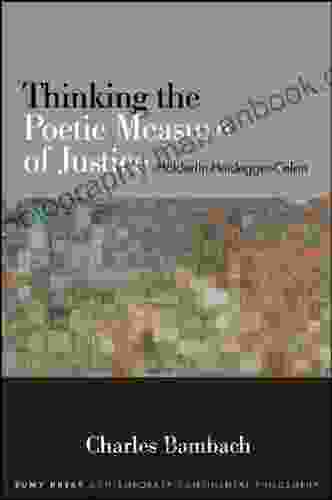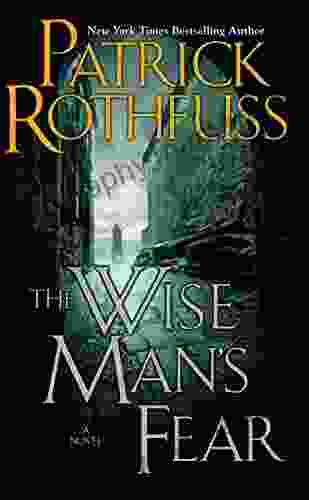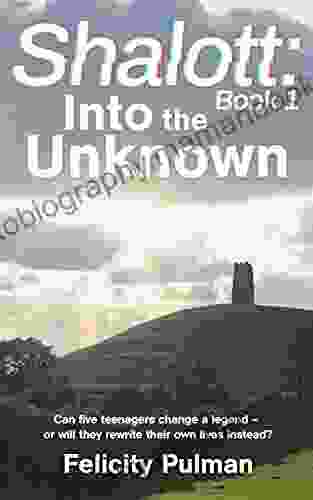The works of Friedrich Hölderlin, Martin Heidegger, and Paul Celan have left an indelible mark on contemporary continental philosophy. These thinkers, each in their own unique way, have grappled with the fundamental questions of being, language, and the human condition. Their ideas have inspired and challenged generations of philosophers, and their influence continues to be felt today.
Hölderlin: The Poetic Turn
Friedrich Hölderlin (1770-1843) was a German poet, philosopher, and playwright. His work is characterized by its lyricism, its exploration of the relationship between nature and humanity, and its deep engagement with the Greek classics.
5 out of 5
| Language | : | English |
| File size | : | 1162 KB |
| Text-to-Speech | : | Enabled |
| Screen Reader | : | Supported |
| Enhanced typesetting | : | Enabled |
| Print length | : | 348 pages |
Hölderlin's philosophy of nature is rooted in the idea that nature is a living, organic whole. He believed that humans are part of nature, and that we must live in harmony with it. This view of nature is in stark contrast to the dominant mechanistic view of nature that was prevalent in the 18th century.
Hölderlin's philosophy of language is also closely tied to his philosophy of nature. He believed that language is a living, organic thing that is constantly evolving. He saw language as a way of expressing our connection to nature and to each other.
Hölderlin's work had a profound influence on Heidegger, who saw in Hölderlin a kindred spirit. Heidegger believed that Hölderlin's poetry was a way of thinking about the fundamental questions of being. He also saw Hölderlin as a precursor to his own philosophy of language.
Heidegger: The Question of Being
Martin Heidegger (1889-1976) was a German philosopher who is considered one of the most important thinkers of the 20th century. His work is characterized by its focus on the question of being.
Heidegger believed that the traditional way of thinking about being had led to a forgetfulness of being. He argued that we need to return to the question of being and to ask it anew.
Heidegger's philosophy of being is closely tied to his philosophy of language. He believed that language is a way of revealing being. He also saw language as a way of concealing being.
Heidegger's work had a profound influence on Celan, who saw in Heidegger a way of thinking about the Holocaust. Celan believed that Heidegger's philosophy could help us to understand the horror of the Holocaust and to prevent it from happening again.
Celan: The Language of the Holocaust
Paul Celan (1920-1970) was a Romanian-born German poet who is considered one of the most important poets of the 20th century. His work is characterized by its use of language to explore the Holocaust.
Celan's poetry is often difficult to read, but it is also deeply moving. He uses language in a way that is both lyrical and haunting. His poems are a testament to the horrors of the Holocaust, but they also offer a glimmer of hope.
Celan's work had a profound influence on the SUNY faculty who were working on the Holocaust. They saw in Celan a way of thinking about the Holocaust that was both scholarly and personal. Celan's poetry helped them to understand the Holocaust and to find their own voice in speaking about it.
SUNY: A Center for Holocaust Studies
The SUNY system is home to one of the largest and most comprehensive Holocaust Studies programs in the world. The program is based at the University at Buffalo, but it also has faculty and programs at other SUNY campuses.
The SUNY Holocaust Studies program is committed to teaching and research on the Holocaust. The program offers a variety of courses on the Holocaust, including history, literature, and art. The program also supports research on the Holocaust and hosts conferences and other events on the Holocaust.
The SUNY Holocaust Studies program is a valuable resource for students, scholars, and the general public. The program provides a space for learning about the Holocaust and for reflecting on its meaning.
The works of Hölderlin, Heidegger, and Celan have had a profound impact on contemporary continental philosophy. These thinkers have grappled with the fundamental questions of being, language, and the human condition. Their ideas have inspired and challenged generations of philosophers, and their influence continues to be felt today.
The SUNY Holocaust Studies program is a testament to the enduring legacy of these thinkers. The program provides a space for learning about the Holocaust and for reflecting on its meaning. It is a vital resource for students, scholars, and the general public.


















































































































